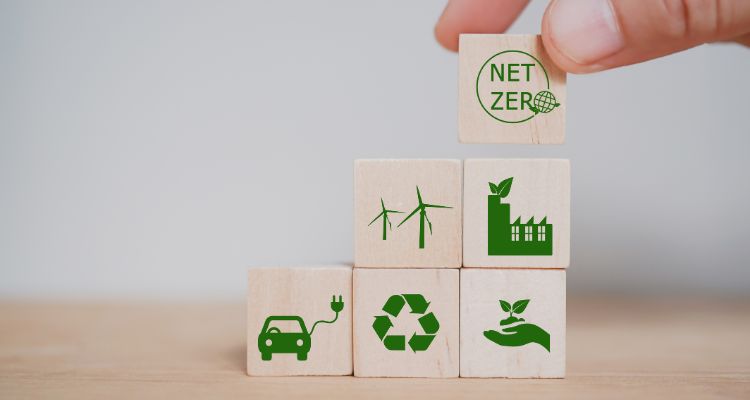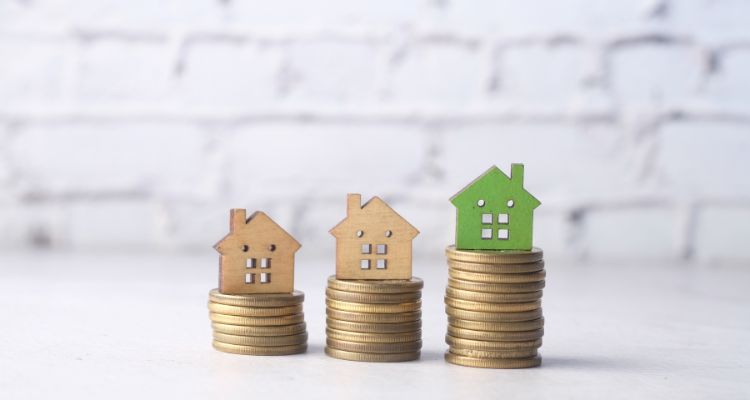A home loan top up can be a practical option when you need extra funds. Essentially, it’s an additional amount you borrow on your existing mortgage.
This can be a smart way to finance renovations, big-ticket purchases, or consolidate debt, with the advantage of home loan interest rates being lower than personal loans or credit cards.
When you’ve built up equity in your home, you may have the opportunity to increase your loan amount to cover those extra costs.
Understanding how a home loan top up works is fairly straightforward. Imagine you’ve paid down a portion of your mortgage or your property’s value has increased – you now have equity that can potentially be accessed through a top up.
It’s like unlocking the stored value in your home without needing to sell it. Lenders have different terms and minimum amounts for a top up, and we can advise you on which lenders have home loan top up products that best suit your needs.
Let’s explore home loan top ups, use cases and pros and cons, so you can make an informed choice if a home loan top up is right for you.
What is a Home Loan Top Up?
When you’re looking at increasing your home loan amount, possibly for a big purchase or home improvements, home loan top-ups offer a way to borrow against the equity you already have in your property. This versatile financial option could be your ticket to fulfilling those goals.
Definition and Purpose
A home loan top-up is an additional loan amount that you can add to your existing mortgage.
It relies on the concept of equity, which is the difference between the current value of your property and the amount you still owe on your mortgage. If you’ve built up enough equity, you can apply for a top-up to fund various needs, including home improvements, large purchases, or renovations.
How Equity is Calculated
Equity in home loans is calculated by taking the current market value of your property and subtracting the amount you still owe.
For example, if you have a property that is worth $500,000 and you owe $300,000 your equity would be $200,000.
This doesn’t mean you can borrow an extra $200,000 however, as loan to value ratios still apply.
How You Can Use a Home Loan Top Up
Not all top-ups are the same, but at OneStop Financial Solutions, we’ll help you choose the right top up to meet your needs. Some examples include:
In New Zealand, you can use a home loan top-up for various purposes as long as you have sufficient equity in your property and your lender approves the additional borrowing. Common uses for a home loan top-up include:
- Home renovations and improvements: Enhancing your property, which can also potentially increase its value.
- Debt consolidation: Paying off high-interest debts like credit cards or personal loans, potentially reducing the total interest you pay over time.
- Large purchases: Funding significant expenses such as buying a car or paying for a wedding.
- Investments: Putting money into shares, business opportunities, or additional property.
Renovations and Home Improvements
Renovating your home can provide you tremendous satisfaction and comfort. From updating your kitchen to renovating your bathroom, renovations allow you to tailor your home to fit your personal style and needs.
Financial institutions like ANZ and ASB offer specialised home loan top-up products for renovations and energy-saving upgrades. The ASB Better Homes Top Up, for example, allows you to borrow additional funds to enhance your house’s energy efficiency or to purchase a hybrid or electric vehicle.
Upgrades like adding insulation or installing solar panels not only reduce your carbon footprint, but they can also lead to significant savings on energy bills. Consider the long-term benefits of making your home more energy-efficient.
By taking advantage of such offers, you’re not just renovating; you’re also investing in a sustainable future. For more information, check out Homestar and Gen Less who offer useful guidance on creating more energy-efficient homes.

Sustainable Living Incentives
Your journey to a greener home can be made easier through home loan top-ups aimed at sustainable living. For example, ANZ offers the Good Energy Home Loan, providing up to $80,000 to fund eligible improvements such as:
- Insulation: Transform your home into an energy-saving haven.
- Double glazing: Upgrade windows to maintain a comfortable temperature.
- Solar panels: Harness the sun’s power and reduce your electricity bills.
A specialised top-up like the BNZ Green Home Loan supports purchases directly tied to reducing carbon footprints. Here’s how you can use it:
- Electric or hybrid vehicle: Swap your petrol-guzzler with something more sustainable.
- Hot water solutions: Install energy-efficient systems to heat your water.
Benefits of Home Loan Top-ups
Using a home loan top-up can offer several benefits:
- Lower Interest Rates: The interest rates for a home loan top-up are lower than those for personal loans or credit cards, making it a cost-effective way to borrow money.
- Consolidated Debt: If you have existing mortgage debt, a top-up allows you to borrow additional funds without taking out a new loan, keeping your debts consolidated in one place with one monthly repayment.
- Flexible Repayment Terms: Home loan top-ups usually offer flexible repayment terms that can be aligned with your current mortgage, making it easier to manage your budget.
- Ease of Approval: If you have a good repayment history on your existing mortgage, getting approval for a top-up can be easier and quicker than applying for a new loan
It’s always a good idea to speak with a financial adviser or lending specialist to ensure that a home loan top-up is the best option for your specific needs.
Top-up Eligibility and Lending Criteria
Lenders will closely examine your income and financial stability to determine if you can afford additional loan repayments on a top-up.
You’ll need to provide evidence of your income, like payslips or tax returns, and demonstrate that you can manage the extra borrowing without financial strain.
Evaluating Equity and Property Value
Your equity—the value of your home minus any outstanding mortgage—plays a big part in your eligibility for a top-up. To borrow more money, lenders require you to have a certain level of equity in your home.
They may also request a new valuation of your property to determine the current Loan to Value Ratio (LVR). Some banks may charge a valuation fee – but our brokers will always look for the lowest cost products for you.
How to Apply for a Home Loan Top-up
If you think a home loan top up is right for you, talk to our team of mortgage specialists at OneStop Financial Solutions. We’ll help you navigate through the application, documentation, and the subsequent steps.
Required Documents
You will need to provide specific documents to support your application:
- Proof of income, like recent payslips or tax returns.
- Details of your current home loan and any other financial commitments.
- Evidence of the purpose of the top-up, such as quotes for a renovation project.
Approval and Disbursement
Upon submitting your application alongside the required documents, the lender will review your request. If approved:
- The top-up amount will be added to your current loan balance.
- Funds are typically made available swiftly, often within a few days.
Talk to a Mortgage Top Up Specialist
Submit your details below and one of our home loan top up specialists will be in touch to discuss your individual needs.

Let's Chat About Your Home Loan Top Up
The Financial Implications of Top-ups
Let’s consider a scenario where you have an existing mortgage and you’re looking to add a $50,000 top-up to it, to be paid over 20 years.
For simplicity, we’ll assume that the interest rate on your mortgage remains constant over the period and that there are no additional fees or costs associated with the top-up.
Here’s how you might evaluate the cost:
- Current Mortgage Details:
- Original loan amount: $300,000
- Interest rate: 6.65% per annum
- Remaining term: 20 years
- Monthly payment: Calculated based on the original loan details
- Top-Up Details:
- Additional amount: $50,000
- Interest rate: 6.65% per annum (assumed to be the same as the current mortgage rate)
- New term: 20 years
- Top-up Repayment Amount: $377 per month
- Total Cost Evaluation:
$50,000 paid off over 20 years would attract $40,532 in interest. Making the total cost of your $50,000 top up $90,532.
This is a simplified scenario that doesn’t take into account any changes in interest rates, potential fees, or variations in repayment schedules. It also assumes that all payments are made on time and that no extra repayments are made to reduce the principal faster.
To understand the full financial impact, calculate the total interest paid over the life of the mortgage, including both the original loan and the top-up. This will be significantly higher than the interest on the top-up alone.
To get a precise figure for your specific situation, speak with our financial advisers to explore your options and understand the full implications.


Interest Rates on Top-Up Loans
Interest rates affect your monthly repayments and the total cost of the loan over time.
Fixed vs Floating Rates
Fixed rate loans give you the stability of knowing exactly what your repayments will be for a set period. For example, with a BNZ Green Home Loan, you could secure a rate of 1% p.a. for three years, which can be ideal for budgeting.
The discounted interest rate for the purpose of making environmentally friendly upgrades to your home or investing in electric transport, so it can’t be used for all purposes.
Floating rate loans fluctuate with the market, which means your repayments could go up or down. While it’s hard to predict future interest rates, a floating rate can be beneficial if rates decrease, as this could reduce the total interest you’ll pay.
At OneStop Financial Solutions, we compare the current home loan top up rates from various lenders to help you make an informed decision aligning with your financial goals.
Home Loan Top Up vs Personal Loan
Personal loans and home loan top-ups have their own set of advantages and disadvantages.
Pros of a Home Loan Top-Up:
- Lower Interest Rates: Home loan interest rates are generally lower than personal loans because they are secured against your property.
- Higher Loan Amount: Since the loan is secured against your home, you may be able to borrow more money than a personal loan.
- Longer Repayment Term: The repayment term of a top-up loan can be aligned with your existing mortgage, potentially spreading the cost over a longer period.
Cons of a Home Loan Top-Up:
- Increased Risk: As the loan is secured against your house, defaulting on payments could lead to losing your property.
- Equity Requirement: You must have sufficient equity in your home to qualify for a top-up loan.
- Longer Debt Period: Extending the loan term can mean paying more interest over time, even if the rate is lower.
Pros of a Personal Loan:
- No Collateral Required: Personal loans are unsecured, so you don’t risk losing your home if you can’t make payments
- Fixed Repayment Schedule: Personal loans typically have a fixed repayment term, which can help with budgeting and planning.
- Quick Processing: Personal loans are often processed and disbursed more quickly than home loan top-ups.
Cons of a Personal Loan:
- Higher Interest Rates: Personal loans usually come with higher interest rates because they are unsecured
- Lower Loan Amounts: Without collateral, the amount you can borrow is usually less than you could with a home loan top-up.
- Shorter Loan Term: A personal loan generally needs to be repaid in a shorter timeframe, which can mean higher monthly payments.
Ready to Chat About a Home Loan Top Up?
If you’re considering a home loan top-up in New Zealand, particularly for renovations or sustainable home improvements, professional advice can be invaluable in navigating your options and ensuring you make a decision that aligns with your financial goals.
At OneStop Financial Solutions, we offer specialised guidance on loans, insurance, and a range of financial services. Our team of experienced mortgage brokers and financial advisers can help you assess the potential benefits and implications of a home loan top-up.
Don’t hesitate to reach out to us to discuss your needs and explore the best financial strategies for your home investment.





